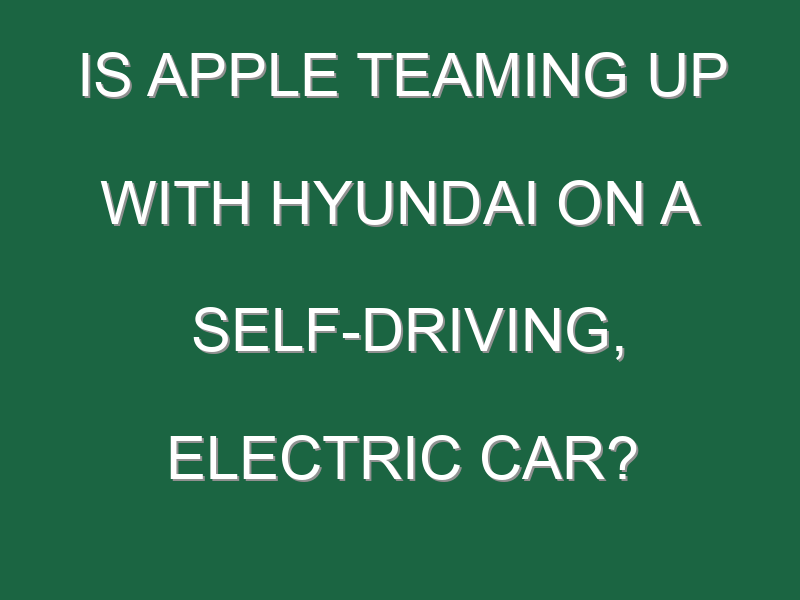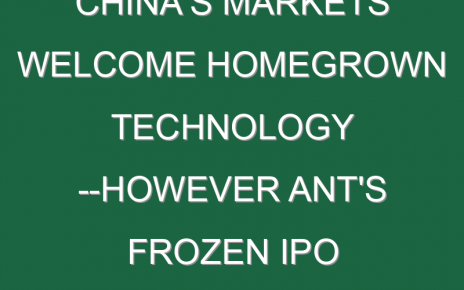Shares of South Korean automaker Hyundai soared on Friday after a company representative said the carmaker was in preliminary talks with Apple on a partnership to produce an electric car.
Hyudai’s stock rose as much as 20%—adding $8 billion to the company’s market value-—the biggest one day jump since 1988.
But, within hours, the company backed away from that statement, telling reporters that its representative had misspoken and that the company had been approached by a number of potential unnamed partners about collaborating on electric vehicles.
Hyundai may have endangered any relationship it was hoping to establish with Apple by naming the company, Bloomberg reported, noting the Cupertino, California-based tech giant has a penchant for secrecy around future products and partnerships. Apple has so far declined to comment on the Hyundai report.
True or not, the whiplashing pair of statements from Hyundai are just par for the course in a decade of on-again, off-again rumors and reports concerning Apple’s ambitions in the automotive sector.
The “ultimate mobile device”
For years, it was the worst kept secret in Silicon Valley: Apple was building a car.
As early as 2015, journalists caught wind of the company hiring dozens of automotive engineers and executives with experience in the industry. It also snagged engineers who had helped Tesla steal a march on the big automakers, proving that there was a market for high-priced, high-design, high-tech electric cars. The internal code name for the secretive skunk works, which eventually included more than 1,000 people, even leaked to the media: “Project Titan.”
There was a strategic logic to the project, many technology analysts said: with global smart phone penetration plateauing, the battle among software ecosystems was moving from mobile phones to mobility itself. “The car is the ultimate mobile device, isn’t it?” Apple’s Chief Operating Officer Jeff Williams said in 2015.
A modern car, after all, was little more than software on wheels—complete with streaming entertainment, sophisticated maps, routing software and soothing-voiced digital assistants, and soon enough, the artificial intelligence to drive themselves. Apple already had expertise in most of these domains. And with electric motors increasingly replacing the internal combustion engine, the industry was seemingly ripe for disruptive new players, especially one with a proven track record for marrying slick hardware design with user-friendly software to create products with blockbuster consumer appeal. Tim Cook, Apple’s chief executive, even said car makers were “at an inflection point for massive change.” Oh, and Apple knew a thing or two about batteries too—or so the argument went.
But then, in 2016, Bloomberg News reported that the company was dramatically scaling back its ambitions, laying off hundreds of the gearheads it had hired for the project. Instead of trying to build its own vehicle, an “iCar,” as some dubbed it, Apple would focus on providing the software to others would need to create connected “smart” car. It would leave the actual vehicle design and production to partners.
There were reports that Project Titan had been beset by internal strife and management disagreements over exactly what kind of car to make and how far towards autonomous driving the company should push. Others said Apple had struggled to master the long, complex supply chains needed to produce a car. Luca Maestri, Apple’s chief financial officer, was also said to be lukewarm on the project. Maestri had been a long-time General Motors executive and always said he had no desire to return to the car business, which is far more capital intensive and far less profitable than Apple’s lucrative hardware and software business model.
Rumors and misdirection
Over the past four years, there have been a constant, low-level hum of rumors about the status of Apple’s automotive ambitions, with a major partnership announcement always supposedly just months or weeks away. But so far no deal has come to light.
Expectations began building once again in December after Reuters reported, citing anonymous sources “familiar with the matter,” that Apple planned to have its own-branded electric, self-driving car in production by 2024, complete with its own “breakthrough battery technology.” Some even began suggesting that Apple posed a serious threat to Tesla’s galloping stock price.
But no sooner had that story appeared than Bloomberg News’ well-sourced Apple reporter Mark Gurman appeared to pour cold water on the renewed iCar talk, writing earlier this month that unnamed sources within the company had told him the project, being overseen by a small team, was only in preliminary stages and that any Apple autonomous vehicle was “at least half a decade” from being launched.
Perhaps this is deliberate misdirection on Apple’s part. But if history is any guide, investors might be wise to take any profits in Hyundai’s stock while they still have a chance.
More must-read tech coverage from Fortune:
- Who is Cristiano Amon, Qualcomm’s new CEO?
- Commentary: The Facebook antitrust suit is a major assault on entrepreneurs
- Vaccinating the world against COVID is off to a slow start. These firms think A.I. and blockchain could help
- Attempted coup at Capitol presents key opportunity for cyberattack, experts warn
- 5G will get better this year, promises Verizon exec





